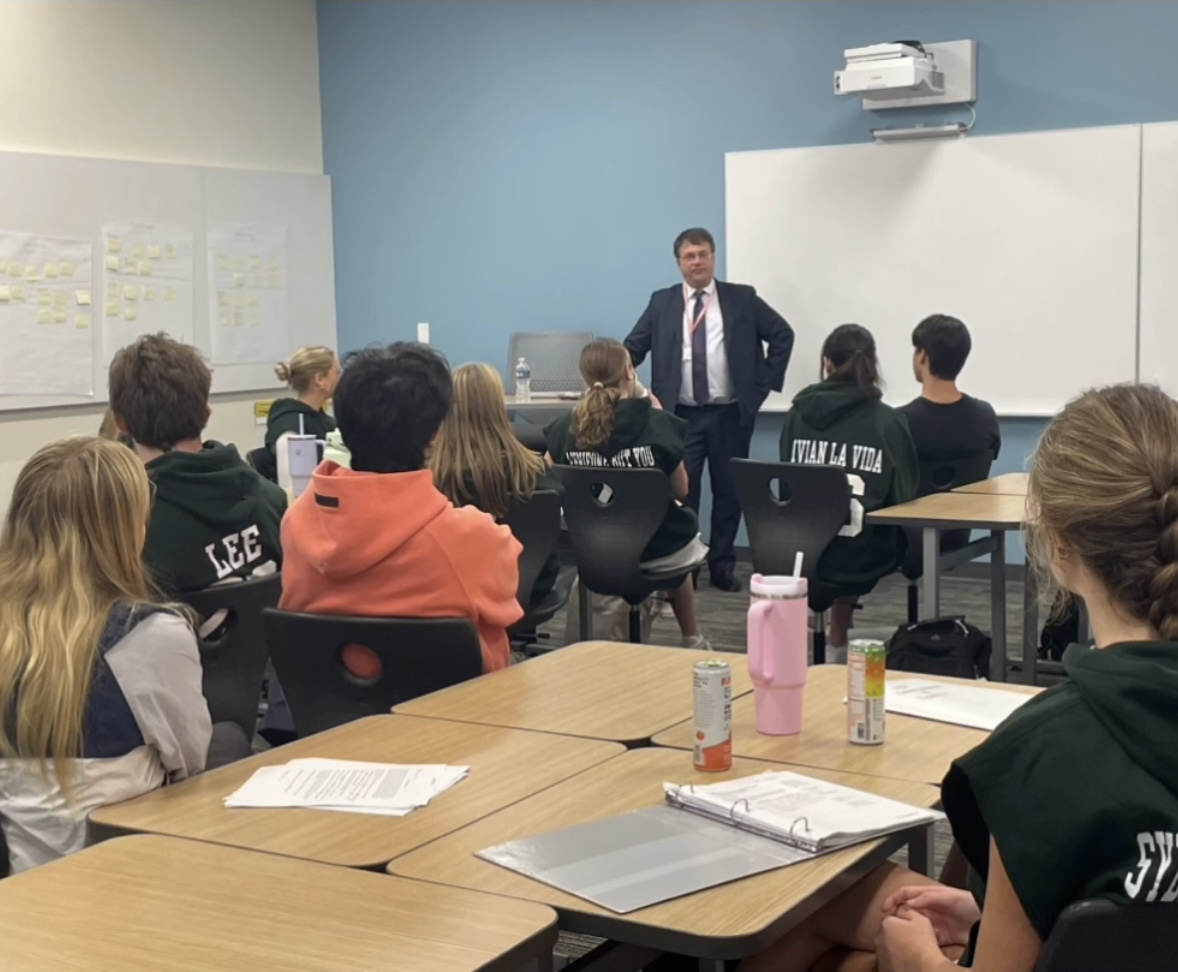New Trier students tend to have the same morning routine: we wake up exhausted after watching too much Netflix the night before; we rummage through our closets searching for an appropriate (or in some cases inappropriate) outfit for the day; we drag ourselves out the door, ultimately trudging into the buzzing halls of New Trier and to our adviseries.
However, the next step in many students’ routines varies. As we talk amongst our friends about the latest gossip, the bell goes off and we are asked to “Please stand for the Pledge of Allegiance.”
Yet many students disregard this message. They simply go about their conversations and neglect the Pledge of Allegiance. Is this acceptable behavior?
Written by Baptist minister and Christian Nationalist Francis Bellamy in 1892, the Pledge was created to promote American nationalism in US students and to sell American flags in public schools as part of a 400th anniversary celebration of Christopher Columbus’ arrival in the Americas.
The Pledge first came under scrutiny in 1940 with the case of Minersville School District v. Gobitis, and again in 1944 in West Virginia State Board of Education v. Barnette. Through these cases the Supreme Court held that it was illegal for public schools to force anyone to salute the flag or partake in the Pledge of Allegiance.
The Pledge again evolved in the 1948 when the “under God” clause was added by Illinois attorney Louis Bowman. It, too, has been subject to scrutiny and court cases. Clearly, the history behind the Pledge is complex, as is the question of whether a student should participate in reciting it. However, that is not the issue at hand. The issue New Trier faces is the lack of respect for the students who do in fact actively participate in the pledge.
If you walk into a New Trier advisery at roughly 8:20 a.m, students will be lamenting their lack of fantasy football mastery, gossiping about the latest fashion trends, or complaining about the pile of homework they had to do the night before.
Lost in this chaotic discussion is the voice we hear every day over the loudspeaker announcing the Pledge of Allegiance. Many students disregard this announcement and continue on with their conversations.
We believe students who do actively participate in this daily tradition deserve the respect of silence from their peers as they echo the voice on the loudspeakers.
As part of a Veterans unit last spring, one American Studies class partook in a service project in support of veterans. One group volunteered at Ride 2 Recovery, a bike ride in support of wounded veterans. The most important idea the organizers stressed, according to the participants, was the emphasis of the word “ride.”
They explained that the event was not to see who could finish the course the fastest, but to see these wounded veterans complete something that years, months, or even weeks earlier never would have seemed possible.
This ideology was a testament to the sacrifices made by our veterans, those who continue to protect our country, and the unalienable rights we are guaranteed by the Constitution.
As contestants in standard bikes, hand bikes, sitting bikes, and all other contraptions used for the ride rolled across the finish line, students began to recognize what these men and women had gone experienced. Their sacrifices were the ones we should honor with te Pledge.
We would like to think that New Trier students respect and understand how lucky we are to live in the community and country that we do, and to enjoy the freedoms and opportunities that are afforded to us.
We even have the choice, the freedom, as to whether or not we want to say the pledge in the first place.
Therefore, next time you hear the Pledge, you don’t need to participate, but at least respect those who do by keeping your voice down.







































